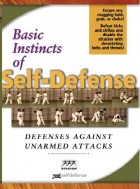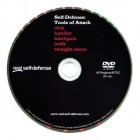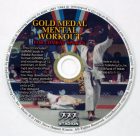Blunt weapons in self-defense: How to and how not to use them
In this tip I talk about using blunt weapons in self-defense. I will write about other kinds of weapons at another time.
Whenever you strike an assailant in self-defense, your strike cannot merely anger the assailant, or worse, amuse him. If you use a weapon and anger the assailant instead of disabling him, your weapon will be turned on you.
Here are examples of how not to strike with blunt weapons:
If strikes are so weak that the blunt weapon, in this case the Unbreakable® Umbrella, bounces off the bag, it means it will bounce off the assailant with equally little effect. Here the strikes are weak mostly because of a poor grip.
Now, demos of solid strikes:
Remember: Each strike has to disable the assailant, at least momentarily, and preferably for long enough, so you can get away — or continue your “persuasion” to a successful end. When practicing on a bag, you have to strike “through” it, putting your hips into strikes.
For instructions on practicing strikes that work in self-defense, see tips below.
Self-Defense Tip #105 — Training for Self-Defense with an Umbrella, a Stick, or a Cane
Self-Defense Tip #112 — Defense With and Against Canes and Sticks
Self-Defense Tip #114 — About Weapons
Attention:
Applying any of the techniques mentioned above is your sole responsibility.
Neither Never-Thought-of-It LLC nor the author of this self-defense tip, nor persons pictured in this self-defense tip, make any representation, warranty, or guarantee that the techniques described or shown in this tip will be safe, effective, or legal in any self-defense situation or otherwise.
The reader or viewer assumes all risks and hazards of injury or death to herself, himself, or others, as well as any resultant liability for the use of the techniques and methods contained in this self-defense tip.
Specific self-defense responses demonstrated or described in this self-defense tip may not be justified in certain situations in light of all the circumstances or under the applicable federal, state, or local law. Neither Never-Thought-of-It LLC nor the author of this self-defense tip makes any representation or warranty regarding the legality or appropriateness of any techniques described or demonstrated in this self-defense tip.
Self-defense tip from Thomas Kurz, co-author of Basic Instincts of Self-Defense and author of Science of Sports Training, Stretching Scientifically, and Flexibility Express.
Self-Defense Moves
For your defense moves to work under stress they must be based on your natural, instinctive reactions, require little strength and limited range of motion, and be proven in fighting experience.To learn how your natural reactions can instantly defeat any unarmed attack, see the video Basic Instincts of Self-Defense.
Defend Against Weapons
To defend against weapons you have to know how they are used. Also — every stick has two ends … the weapon of attack may become a weapon of defense in your hand …To learn how the typical street weapons (club, knife, razor) are used by an experienced streetfighter and how to practice with them, see the video Self-Defense: Tools of Attack — Club, Hatchet, Blackjack, Knife, Straight Razor.
Mental Toughness
Staying cool under pressure is more important for self-defense than being physically fit and technically skilled. If you can’t control your mind what can you control?To learn mental techniques that let you calmly face any threat and act rationally in the heat of a fight, click here.
For a complete list of our products, click here.







